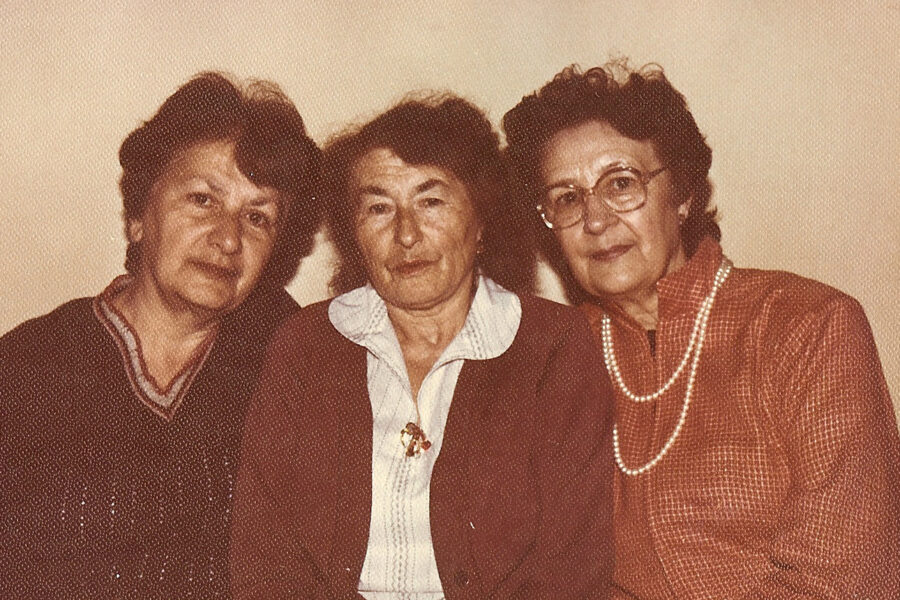I was born on May 28, 1935, in Kiev, Ukraine, to losif and Rakhil
(Blankman) Kogan. My father was a Soviet government
employee, and my mother was a housewife. Before the war
I was their only child. We lived in one room of a big five-bedroom
apartment in Kiev.
At 4:00 a.m. on June 22, 1941, a noise awakened me. I got
out of bed and looked out of the window. I saw German planes in
the sky. Tracers from the antiaircraft guns illuminated the sky. My
parents woke up, too, and we realized that war had begun. At 6:00
in the morning we got a phone call from a Ukrainian government
official; my father was commanded to go to the office immediately
and to prepare roads for heavy machinery relocation. My father
was told that if he would not be able to complete this task in two
days, he would be demoted and punished by death.
My father came back home in two days, and after a short break
he went to the Kiev military commissariat to sign up for the Red
Army. My mother’s two brothers, Yefim and Iosif, went with him.
The Red Army did not accept Yefim because he was disabled, but
my father and Iosif were mobilized right away.
Kiev was heavily bombed. On June 28, someone from my father’s
office called my mother and told her that we must evacuate.
At first my mother was told to leave Kiev in a caravan of horses
and wagons, but her brother Yefim warned her against leaving that
way. He was right, because the Germans bombed that caravan,
and many were killed.
On July 10, 1941, we decided to leave. My mother, my maternal
grandmother, Maria Blankman, my aunt Evgeniya (my father’s
brother’s wife), her daughter Sofa, and I departed Kiev by train.
The train had eighty cars filled with wounded soldiers and two cars
for civilians, with seventy evacuees in each car.
My father’s brothers, Yefim and Aleksandr, were also relocated
elsewhere with their factory.
Our train was bombed constantly during the evacuation. At one
point I wanted to look out of the train door to witness the bombing
around us, but I was pushed out of the way by one of the other
male passengers who was immediately killed by bomb shrapnel. I
had blood all over my body, and I still have nightmares about this
horror even today. I also remember the smell of the wounded soldiers
on our train and the sight of the dead being taken off.
Finally, after eighteen days of travel, our train arrived in Orenburg
oblast, a region around the Ural Mountains. My family was
sent to a collective farm named Molotov in that area. My first meal
there was kasha and butter; I still consider it the best meal of my
life. My cousin Sofa and I went to kindergarten. My mother and
aunt went to work in the fields. We remained on the collective farm
for some two months until we received an invitation from Yefim and
Aleksandr, my father’s brothers, whose factory had been moved to
Semipalatinsk, Kazakhstan. We arrived in Semipalatinsk on October
22, 1941. There we met Aleksandr’s family, which had escaped
from Kiev.
In Semipalatinsk, I lived with Aleksandr’s family in a primitive
yurt infested with bedbugs. Most of the time our food consisted of
bread and onions. Once we were invited by Kazakhs for a meal of
rice with sheep’s meat. When I stepped outside following the meal,
several Kazakh boys beat me, but I did not understand what I had
done. I quickly learned that I had left my bowl turned up rather than
turning it over. This mistake was considered a sign of disrespect
to the host.
My mother could not find a job there, so she went to the local
military commissariat to ask for any job she could do to help the
front line. She was offered a position of seamstresses’ supervisor
in a textile factory that produced military uniforms. My grandmother
also was working at the factory as a chief of quality control. The
sewing machines were installed in tents, and workers had to warm
their hands at a nearby fire, yet they produced hundreds of military
uniforms monthly.
Food shortages and the severe weather made life in Semipalatinsk
very difficult. Several of my boyhood friends there died as a
result of these conditions. My mother and grandmother spoke to
each other only in Yiddish, so I learned the language. I attended
school, and I remember that in 1943 on the national holiday commemorating
the Russian Revolution, children were given three
small candies. I ate one and brought the other two to my mother
and grandmother.
My father was serving in the Red Army air forces. His regiment
was under siege, and it received an order to try to escape occupied
territory in small groups. Twice my father was arrested by
Ukrainian collaborators serving as police. He came very close to
being killed but escaped. When Father was crossing the front line,
he was wounded and received a severe concussion. He could not
remember his name or who he was for more than a month. My
mother received a note that Father was missing, only to receive
another letter the next day from Father himself. He was alive and
wrote this letter while in a hospital. My father’s concussion resulted
in memory loss for a time, and this condition added to the confusion
about his fate.
After rehabilitation my father was transferred to a cadet military
school for training to become a military officer for the Red Army.
Father was there for about three months, and then as a lieutenant
he was sent to defend Stalingrad.
In 1942, when another commanding officer was killed, my father
assumed his responsibility. In another two months, he was a commander
of a battalion with six hundred people under his command.
Later he went on to become a regiment’s commander. He had such
a fast-rising military career!
After the Soviet victory in the Battle of Stalingrad, my father was
among ten brave officers and soldiers who received various Soviet
medals and a medal from the U.S. government. At this celebratory
event, some American military commanders were present, and one
of the guests asked if there was anyone among the heroes who
was Jewish. My father stepped forward. He received a steel watch
with the following words engraved in Russian: “To a brave defender
of Stalingrad from the American Jewish Joint Distribution Committee.”
This watch played a tragic role in my father’s life as well as
in future of our family.
At the beginning of 1944, my father was wounded again. After
his discharge from the hospital he was able to stop in Kiev and
find our apartment. He completed all the necessary bureaucratic
paperwork to request our transfer back to Kiev. Father was a
military major at that time, and so he could make such requests.
My family first had to travel to Moscow. Fortunately, we missed
the train we were supposed to take from Moscow to Kiev—it was
bombed and destroyed. We finally returned to Kiev. My father had
ended the war as a highly decorated lieutenant colonel. When I
asked how he had won all the medals on his chest, my father replied
that they were not for him but rather for those he had served
with.
On three different occasions my mother received notices from
the Soviet military that my father had been killed in action, but he
survived the war.
In June 1945, my father requested that our family be moved to
Germany, and we lived with him in Braunsberg until fall 1945. At
this time, my father took me—I was ten years old—and my friend
Vasya together with our mothers to see Auschwitz-Birkenau. He
wanted me to see and remember what was to become the iconic
site of the Holocaust. I remember it as a place of absolute horror.
I saw the warehouses with the belongings of the victims, the
barracks, and the gas chambers. I still have horrible memories of
witnessing this as a child.
For two years our family lived in Kazan, Russia, where my father
was serving. In 1947 my father was decommissioned from the Soviet
army and obtained a position with the state airline, Aeroflot, in
Kiev. Life was getting back on track.
In 1950 the watch given to my father by the American Jewish
Joint Distribution Committee had broken. When my father took the
watch to be fixed, the repairman reported him to authorities as the
owner of an American watch. My father was called to the military
commissariat and questioned about the watch and the American
medal. He had to leave both the watch and medal with the military
commissar. The same night, at midnight, the KGB came to my family’s
apartment and arrested my father after searching our house.
After a few days, my father returned home but was arrested again
and was held for seven months in detention. During this time, he
was beaten and forced to confess (falsely) that he was an Israeli
and American spy. After a brief trial he was sentenced to twentyfive
years of hard labor in Omsk, Siberia. Our family’s belongings
were confiscated, although some were returned later.
My father was rehabilitated in August 1955, more than two years
after Stalin’s death in 1953. His good name, medals, and his military
regalia were restored to him but not his watch. My father’s time
under arrest and hard labor had taken its toll; he was only fifty-nine
years old when he died in 1968.
One hundred seven members of my extended family were murdered
at Babiy Yar in the first months following the occupation
of Kiev. Among those murdered were my maternal uncle, Yefim
Blankman, who was disabled and could not leave. Yefim, his wife,
Vera, and their two sons, six-year-old Grisha and six-month-old
Zakhar, were shot to death. My great-grandmother, Maria Krizberg,
age ninety-nine, also was murdered, as were my father’s sister,
Nina Kogan, her husband, Avram, and their daughter, Bertha. My
father’s parents, Elia and Maria Kogan, did not want to leave Kiev
because they considered the Germans “a civilized people.” They,
too, were murdered at Babiy Yar.
I still can see many of the faces and hear many of the voices
of my family members who died at Babiy Yar. In that way they are
still alive for me.
Never Heard, Never Forget: Vol. II, 2022






